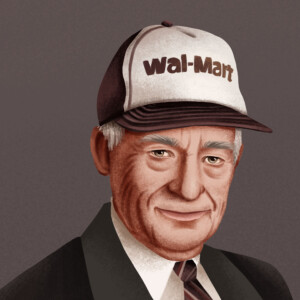
- Podcast Features
-
Monetization
-
Ads Marketplace
Join Ads Marketplace to earn through podcast sponsorships.
-
PodAds
Manage your ads with dynamic ad insertion capability.
-
Apple Podcasts Subscriptions Integration
Monetize with Apple Podcasts Subscriptions via Podbean.
-
Live Streaming
Earn rewards and recurring income from Fan Club membership.
-
Ads Marketplace
- Podbean App
-
Help and Support
-
Help Center
Get the answers and support you need.
-
Podbean Academy
Resources and guides to launch, grow, and monetize podcast.
-
Podbean Blog
Stay updated with the latest podcasting tips and trends.
-
What’s New
Check out our newest and recently released features!
-
Podcasting Smarter
Podcast interviews, best practices, and helpful tips.
-
Help Center
-
Popular Topics
-
How to Start a Podcast
The step-by-step guide to start your own podcast.
-
How to Start a Live Podcast
Create the best live podcast and engage your audience.
-
How to Monetize a Podcast
Tips on making the decision to monetize your podcast.
-
How to Promote Your Podcast
The best ways to get more eyes and ears on your podcast.
-
Podcast Advertising 101
Everything you need to know about podcast advertising.
-
Mobile Podcast Recording Guide
The ultimate guide to recording a podcast on your phone.
-
How to Use Group Recording
Steps to set up and use group recording in the Podbean app.
-
How to Start a Podcast
-
Podcasting
- Podcast Features
-
Monetization
-
Ads Marketplace
Join Ads Marketplace to earn through podcast sponsorships.
-
PodAds
Manage your ads with dynamic ad insertion capability.
-
Apple Podcasts Subscriptions Integration
Monetize with Apple Podcasts Subscriptions via Podbean.
-
Live Streaming
Earn rewards and recurring income from Fan Club membership.
-
Ads Marketplace
- Podbean App
- Advertisers
- Enterprise
- Pricing
-
Resources
-
Help and Support
-
Help Center
Get the answers and support you need.
-
Podbean Academy
Resources and guides to launch, grow, and monetize podcast.
-
Podbean Blog
Stay updated with the latest podcasting tips and trends.
-
What’s New
Check out our newest and recently released features!
-
Podcasting Smarter
Podcast interviews, best practices, and helpful tips.
-
Help Center
-
Popular Topics
-
How to Start a Podcast
The step-by-step guide to start your own podcast.
-
How to Start a Live Podcast
Create the best live podcast and engage your audience.
-
How to Monetize a Podcast
Tips on making the decision to monetize your podcast.
-
How to Promote Your Podcast
The best ways to get more eyes and ears on your podcast.
-
Podcast Advertising 101
Everything you need to know about podcast advertising.
-
Mobile Podcast Recording Guide
The ultimate guide to recording a podcast on your phone.
-
How to Use Group Recording
Steps to set up and use group recording in the Podbean app.
-
How to Start a Podcast
-
Help and Support
- Discover

Sam Walton was an American businessman and entrepreneur who founded Walmart, one of the largest retail corporations in the world. Born on March 29, 1918, in Kingfisher, Oklahoma, Walton grew up during the Great Depression and developed a strong work ethic and an understanding of the value of money.
In 1962, Walton opened the first Walmart store in Rogers, Arkansas. He aimed to provide customers with high-quality products at affordable prices. Over time, Walmart expanded rapidly, opening more stores across the United States and eventually globally. Under Walton's leadership, Walmart introduced innovative practices such as using barcodes for inventory management, implementing a sophisticated distribution system, and pioneering the concept of large discount stores.
Walton understood the importance of building strong relationships with suppliers and emphasized cost-cutting measures to offer low prices to customers. His focus on efficiency, constant improvement, and customer satisfaction helped Walmart become a dominant force in the retail industry.
Beyond his contributions to Walmart, Sam Walton also had a significant impact on the retail sector as a whole. His business strategies, including centralized buying, extensive data analysis, and aggressive expansion, set a new standard for retail operations. His emphasis on customer-centricity and employee engagement also became guiding principles for many businesses.
Sam Walton passed away on April 5, 1992, leaving behind a lasting legacy. Today, Walmart operates thousands of stores worldwide and continues to be a leading retailer, embodying the principles and values established by its founder.
Chapter 2:Does Sam Walton still own Walmart
Sam Walton does not still own Walmart. He passed away on April 5, 1992. After his death, his ownership stake in the company was inherited by his wife, Helen Walton, and their children. The Walton family remains one of the major shareholders of Walmart through their collective ownership of shares. However, Walmart itself is a publicly traded company, meaning that its ownership is spread among numerous individual and institutional shareholders who hold shares of the company's stock.
Chapter 3:What are some interesting facts about Sam Walton and Walmart
Frugality: Despite his immense wealth, Sam Walton was known for his frugal lifestyle. He drove an old pickup truck, flew economy class, and famously picked up discarded price tags to track competitor prices.
Walmart's Origins: The first Walmart store opened on July 2, 1962, in Rogers, Arkansas. It started as a small discount store, originally named "Walton's 5 & 10," before evolving into the global retail giant it is today.
Fast Growth: Walmart experienced rapid expansion under Sam Walton's leadership. By 1967, Walmart had reached 24 stores and reached 78 stores by the end of the 1970s. Today, it operates thousands of stores worldwide.
Employee Focus: Sam Walton believed in investing in his employees. He introduced profit-sharing plans, encouraged employee stock ownership, and emphasized the importance of teamwork and recognition within the company.
Everyday Low Prices: Walmart became known for its "Everyday Low Prices" strategy, offering products at affordable prices consistently. This approach revolutionized the retail industry and contributed significantly to Walmart's success.
Innovations in Supply Chain: Walmart was a pioneer in adopting advanced supply chain practices in the retail sector. It implemented technologies such as barcode scanning, electronic data interchange, and satellite communication systems to enhance efficiency and inventory management.
Philanthropy: Sam Walton and Walmart have a strong history of philanthropy. The Walmart Foundation supports various causes, including education, hunger relief, and disaster response. Walton himself donated a significant portion of his wealth to charitable endeavors.
Sustainability Initiatives: Walmart has made significant efforts to improve sustainability and environmental practices. It aims to be supplied by renewable energy sources and has implemented initiatives to reduce waste, conserve resources, and support ethical sourcing.
More Episodes
 2024-04-14
2024-04-14
 22
22
 2024-03-31
2024-03-31
 20
20
 2024-03-23
2024-03-23
 20
20
Create your
podcast in
minutes
- Full-featured podcast site
- Unlimited storage and bandwidth
- Comprehensive podcast stats
- Distribute to Apple Podcasts, Spotify, and more
- Make money with your podcast
It is Free
- Privacy Policy
- Cookie Policy
- Terms of Use
- Consent Preferences
- Copyright © 2015-2026 Podbean.com




